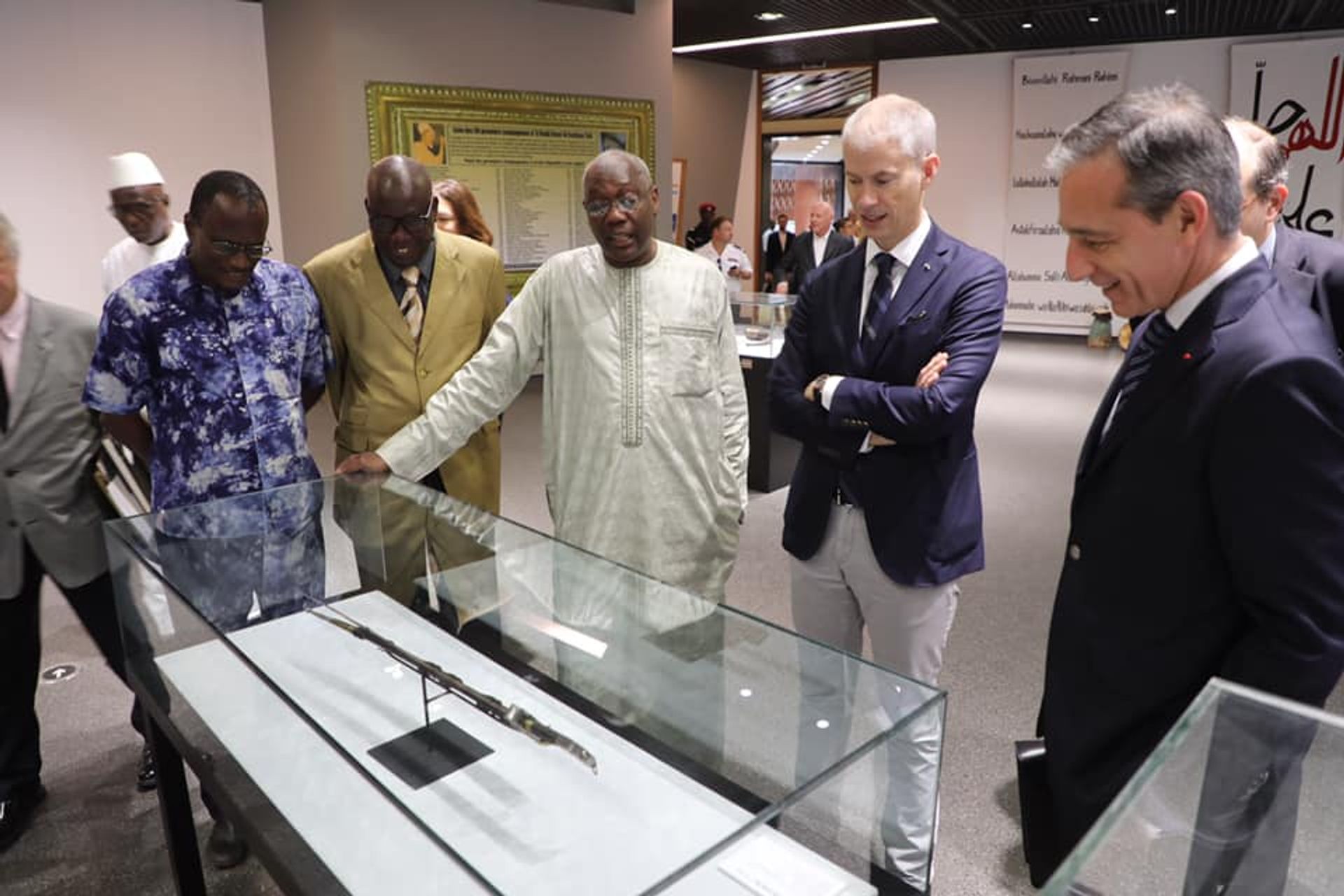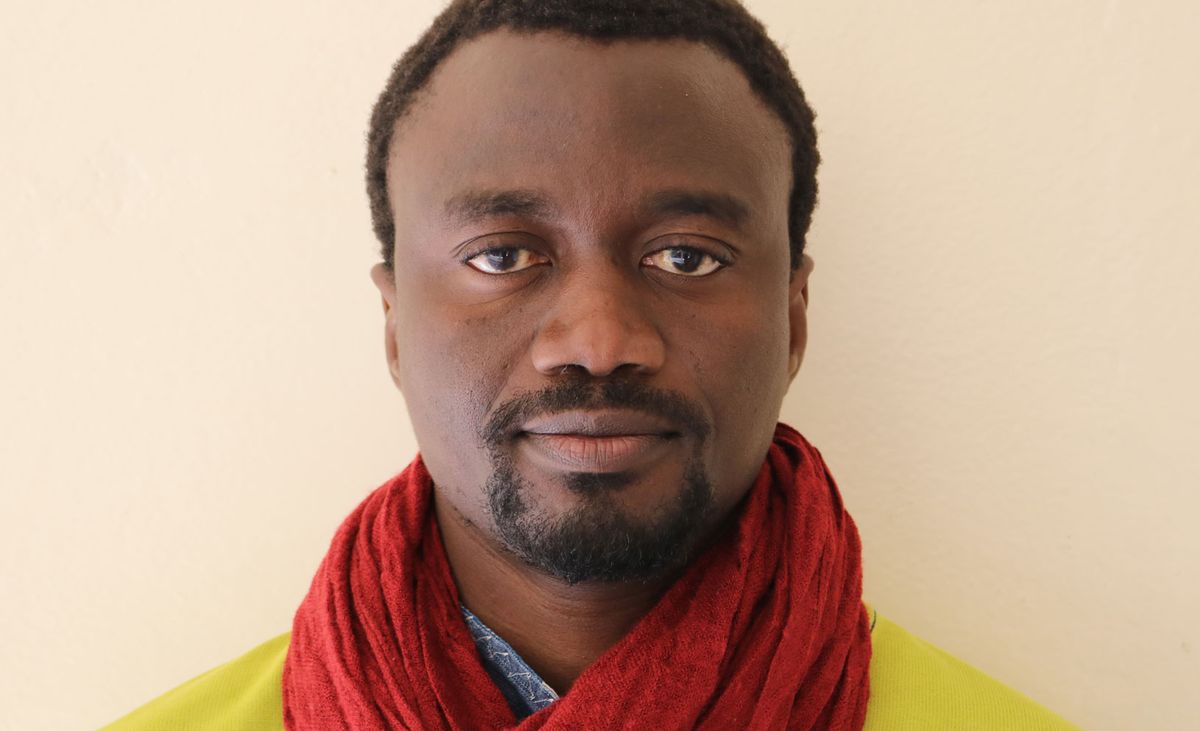Although it is hard to compare the historical context of Nazi-looted art with that of colonial cultural theft, provenance research in both fields shares the same goal: to identify problematic artefacts and seek solutions to right historical wrongs. In an interview, Isabel von Klitzing, a trained lawyer and provenance researcher specialised in Nazi-looted art, discusses the research and restitution of colonial-era African artefacts with the Dakar-based art historian El Hadji Malick Ndiaye, a scholar at the Institut Fondamental d’Afrique Noire Cheikh Anta Diop and curator of the institute’s Théodore Monod Museum of African Art. Ndiaye explains the vital need for African perspectives in the restitution debate, how cultural heritage can help foster relations between African regions and whether researchers of colonial objects can learn from best practices in the field of Nazi-looted art.
Isabel von Klitzing: George Abungu, the former director of the National Museums of Kenya and an advisor to the Humboldt Forum, said the new Berlin museum of world cultures needs “a clear policy that only objects of proper provenance can be used” and “a decolonised process inclusive of voices from source countries”. What do you think about the current dialogue between Western and African countries?
El Hadji Malick Ndiaye: I absolutely share George Abungu’s approach. More involvement of African stakeholders, regardless of the actual return of an object, can also lead to a new type of relationship between the West and Africa. Restitution is only a parenthesis—there can be a dialogue and at the same time objects can be returned. This is no contradiction.
Do you mean that African perspectives have not been considered enough in the ongoing restitution debate so far?
The African perspective has historically never played the role it would merit and therefore needs to be strengthened. European stakeholders are often talking about problems African countries are facing but this is not the point and has to be avoided. The emphasis has to be on the debate between Europeans and Africans. African countries are asking for the return of their objects and at the same time some European countries are trying to put one African country against another. This is not acceptable. African countries need to decide themselves how to conduct their regional relationships without any external influence.
The Institut Fondamental d’Afrique Noire Cheikh Anta Diop in Dakar holds an important archive for the colonial history of Mauritania, Senegal, Mali, Guinea, Ivory Coast, Burkina Faso, Benin and Niger. Before independence, all these countries were part of the colonial federation of French West Africa. Could provenance research into the objects that were taken from these countries in the colonial period lead to inter-African exchange and potentially return?
Many of our objects entered the collections of IFAN following major research missions organised in Senegal and West Africa and the objects were bought directly from the owners. In our last exhibition, we were able to show the diversity of these artefacts, their provenance and the creative diversity of the African continent and especially of West Africa. This is very important for us because we think that the restitution debate needs to be articulated in a different way. It is absolutely evident that the discussion on restitution between Europe and Africa should not be conducted the same way between African countries.
There are of course objects which were taken on the African continent from another African country, there have been tensions and divergencies. But if we consider that around 80% of African artefacts are currently outside of our continent, we need to achieve the restitution of around half of them.
Wherever these artefacts are located in Africa today, they can allow African countries to have a cross-border exchange about their heritage.
The inter-African dialogue takes place on a scientific and political scale. The most important scientific interest is to develop art history on the African continent with a methodology, a vision and an orientation that combines the contours of local knowledge and our artefacts can help with that. On a political scale, African countries need to find the means to have periodical exchanges across mutual invitations, exhibitions and other events.
There have been calls for international guidelines similar to the Washington Principles on Nazi-confiscated art to help Western museums handle provenance research and repatriation of looted colonial heritage in their collections. Are you in favour of such international guidelines for the colonial context?
It would be very positive to have such international guidelines today. However, an equilibrium between African and European experts would be crucial to make sure that such guidelines will be drafted in a balanced way. The discussion needs to take place on a truly international level to achieve a mutual agreement on the terms, references and parameters, also reflecting the vision of the African countries.

In November 2019, the French government returned the seized sword of El Hadj Omar Saidou Tall, a 19th-century west African military leader, to Senegal for display at the Musée des Civilisations Noires in Dakar Photo: Musée Des Civilisations Noires
In cases concerning Nazi-looted art, it can be challenging to identify the rightful party to whom an object should be returned. Similarly, Western museums considering the return of colonial objects seem to have difficulties identifying the entitled recipient in their source countries. Is this a museum’s responsibility or should the source countries deal with these questions?
As many communities from whom objects have been taken during colonial times have become nations, it can be problematic if there are different stakeholders within a nation who consider themselves entitled to a specific object. Such a situation has to be solved on a case-by-case basis. However, this question has in principle already been answered by Bénédicte Savoy and Felwine Sarr in their restitution report from 2018 [commissioned by French president Emmanuel Macron] where they suggest that objects should be returned to the governments of the relevant countries. In my opinion, European institutions do not really want to restitute if they pretend not to know who the right recipient would be.
In a webinar you led for the Open Restitution Project last year, you said that African objects will need to be “re-socialised” once they return to their source countries. Could you explain what this means?
There are two different levels of re-socialisation. The first one is that objects need to be used again for ritual acts. It means to re-integrate these objects in a social and cultural exchange with the communities who have created them. But re-socialisation also means that if an object becomes part of a museum collection [in Africa], it is still entering a process of re-socialisation, because of the transfer of meaning which can be achieved by scholars in an exhibition or through scientific publications. These two conditions can work together. In the case of the sword of El Hadj Omar Saidou Tall, for example, which has been restituted from France to Senegal, the family of the original owner was involved in the return as well as the Musée des Civilisations Noires [Museum of Black Civilisations] where it is on display.
In what ways can African life benefit more from the arts: returning African artefacts to the continent or bringing in non-African art as Léopold Senghor did when he was president of Senegal in 1960-80? What role does contemporary art play?
Our museums are not entirely concentrated on African art. The more variety we have, the better we can show the interaction between different objects and how they influence each other. In many cases, traditional African objects are also serving as resources and inspiration for contemporary art.
Our problem here in Africa is that a lot of expertise and knowledge could never be developed since the ownership chain was interrupted by many objects leaving the continent. Research, expertise and also creativity have to be developed in order to bring this traditional knowledge back to the African continent. This could be regenerated through the return of these objects.
At least those objects which are important to our countries and societies have to be returned to the African continent and we, the African stakeholders, need to choose which artefacts have such a symbolic meaning, not the current holders.
- Isabel von Klitzing is the founder of the firm Provenance Research & Art Consulting. She and her team act on behalf of private and public collections worldwide with a focus on Second World War-era provenance. A lawyer by training, she is currently based between Frankfurt and Dakar


